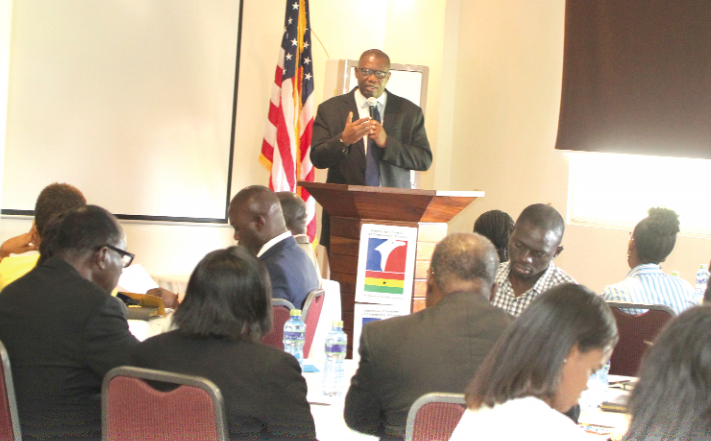The Petroleum Commission has initiated steps to prevent fronting in the upstream petroleum industry as part of meaaures to block revenue leakages to the state as well as create opportunities for local businesses as per the Local Content regulation.
The regulation gives preference to indigenous Ghanaian companies participating in petroleum activities: At least five per cent equity participation of an indigenous Ghanaian company other than GNPC in all petroleum licenses
Fronting on the other hand, is the practice where some foreign investors collude with Ghanaians in the upstream petroleum sector by way of setting up businesses which are passed off as local companies but which in fact, are not.
Consequently, the commission has developed a system of evaluating applications for registration to operate in the upstream sector.
The system involves rigorous scrutiny of applications and back channels to the Register General’s Department to ascertain the bona fides of shareholders and directors of applicant companies.
The acting Chief Executive Officer (CEO) of the Petroleum Commission, Mr Egbert Faibille (jnr) , who announced this at the luncheon under the auspices of the American Chamber of Commerce (AMCHAM) Ghana in Accra on October 12, as part of its Oil and Gas Month celebration said, “unbundling of the high value of contracts is another way the commission has enhanced its regulatory powers”.
“With this, contracts are split into several components to enable other companies to get a share, albeit on merit as compared to the situation where just one company gets the entire contract”, he said.
According to him, the feedback on unbundling had been positive and that the commission would continue on that path.
Mr Failbille (jnr) said the commission was aware of the inherent contradictory outcomes of oil and gas discoveries and had also witnessed the negative socio-economic and environmental impacts of the oil and gas discovery in the sub-region.
“But we are also aware that for oil and gas recourses to either be a curse or a blessing, a lot depends on how the activities are regulated, accrued revenue are equitably distributed, transparency and accountability”, he said.
New block awards
To help create more avenues for increased transparency and accountability, Mr Failbille said, “the current open door policy for the award of oil block is being replaced by the provisions in the Petroleum Act with a Licensing Round (competitive bidding) which is expected to commence in 2018, once the regulations on competitive tendering process is completed”.
The new system, he said, would not only promote transparency, fairness and competition but “allow the state to award to those bids that promise to maximise economic recovery of Ghana’s oil and gas resources”.
More systems
Mr Faibille said in addition to the laws and regulations already existing, the commission had also developed a number of guidelines and policies for effective implementation of various laws and regulations and to further deepen the regulatory environment.
He mentioned some of the measures as guidelines on joint venture formation; company registration; research development; training and skills development and upstream procurement.
“The Petroleum Commission has also developed a number of reporting templates to facilitate monitoring and performance measurements”, he said and added that “these templates will make it easy for the stakeholder organisations to report on their local content, cost management and HSE performances”.
Mr Faibille said the commission was aware of the efforts by the government to introduce the key laws, regulations and policies in the upstream petroleum sector and, therefore, it was essential to promote a transparent environment to attract huge investments into the sector.
ITLOS
According to him, the ITLOS judgment would further strengthen Ghana’s position as the preferred destination in the sub-region for investment in oil and gas exploration and production.
“The commission is committed to working with industry to build a resilient petroleum sector that will become the backbone of our economy and also provide reliable source of energy for accelerated industrialisation of the nation,” he said.
The president of AMCHAM Ghana said the existence of regulation within the oil and gas sector without enforcement would be problematic.
He commended the efforts of the institutional regulators of the activities of the petroleum sector and noted that there was the need for them to be strong in dealing with abuses of the system to avoid revenue loses.
